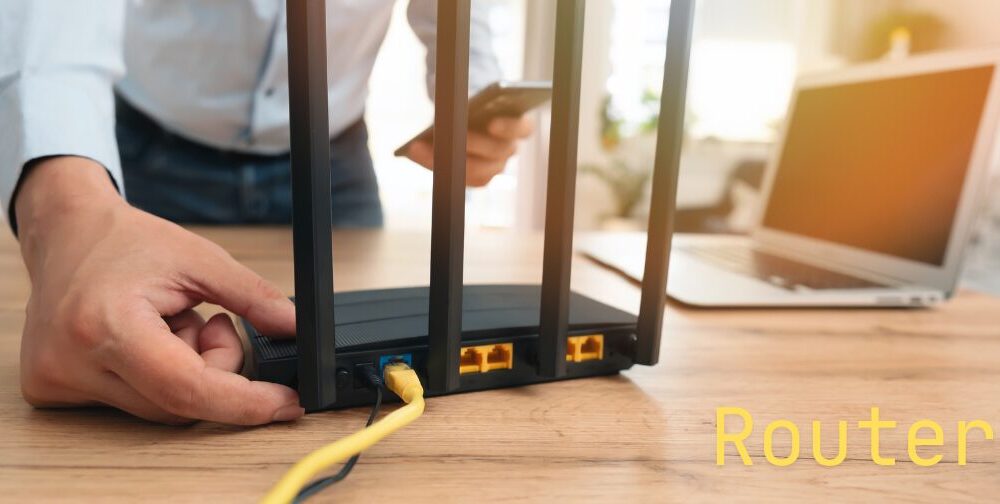Signs It’s Time to Upgrade Your Router for Faster Speeds and Better Coverage

In an increasingly connected world, a reliable and high-speed router is essential for maintaining seamless internet connectivity. But routers don’t last forever, and as technology advances, it’s important to assess whether your current device is meeting your needs. How long do routers last? Typically, a good router lasts between three to five years, depending on usage, brand, and technological changes.
This article will guide you through identifying signs that your router may need replacing, understanding technology trends, and how upgrading can lead to a significantly improved internet experience.
How Long Do Routers Last?
If you’re wondering, how long does a router last? Or how long do Wi-Fi routers last? It’s essential to consider the age of your device and how well it’s performing. Routers generally function well for three to five years, after which performance may start to degrade. Factors like technological advancements, router quality, and the demands of modern devices play a significant role in determining the lifespan of your router.
Signs Your Router Might Need an Upgrade
If your router is three years old or more, it’s worth paying attention to any signs of decline. Here are some common indicators that it might be time to replace your device:
1) Slow Internet Speeds
One of the most noticeable signs is a drop in internet speeds. If your ISP (Internet Service Provider) is delivering high speeds, but you’re not experiencing them, your router may be the issue. Older routers may struggle to keep up with the demands of modern internet usage, especially if you’re using several devices simultaneously. Upgrading to a new router can significantly boost speed and reduce lag, improving your overall internet experience.
2) Frequent Disconnections
Are you experiencing frequent Wi-Fi dropouts? This could be a sign that your router is reaching the end of its lifespan. A new router with advanced capabilities can provide more reliable connections, allowing you to browse, stream, and work without interruptions.
3) Limited Wi-Fi Coverage
Older routers often have limited range, which may mean that parts of your home aren’t receiving a strong Wi-Fi signal. With the advancement of Wi-Fi technology, newer routers are equipped to cover more extensive areas. If you find yourself needing to sit close to your router for a stable connection, it’s a good indicator that an upgrade could be beneficial.
4) Outdated Technology Standards
Technology changes quickly, and routers are no exception. If your router doesn’t support current standards like Wi-Fi 6 or Wi-Fi 7, you’re missing out on faster speeds, better range, and more efficient device handling. Newer routers are designed to accommodate higher speeds and offer more efficient connections for today’s devices, ensuring your home network is optimised.
5) Overheating
Routers work hard to keep your devices connected, and over time, this can lead to overheating. If you frequently notice your router is warm to the touch, it may be working harder than it should. Upgrading to a new model can reduce the risk of overheating and prolong the lifespan of your home network equipment.
Benefits of Upgrading to a New Router
If you’ve noticed one or more of these signs, it’s likely time to consider upgrading your router. Here’s how a new router can enhance your internet experience:
1) Enhanced Speed
Modern routers are designed to deliver faster speeds and handle more devices simultaneously.
2) Improved Coverage and Reliability
New routers come with better antennas and are more powerful, making them ideal for larger homes or spaces with multiple rooms and more reliable at managing multiple devices with better meshing and extenders at your disposal. This means you won’t have to worry about dead zones or weak signals in certain areas of your home. If you’re currently experiencing slow load times or buffering, upgrading to a new router with the latest standards, such as Wi-Fi 6, may help you enjoy a smoother, faster internet connection.
3) Support for Advanced Security Features
New routers often come with advanced security features, like WPA3 encryption, parental controls, and malware protection. These features help protect your network from potential threats, ensuring a safer browsing experience for you and your family.
4) Better Compatibility with Modern Devices
If your home network includes smart home devices, gaming consoles, or streaming equipment, a new router is more likely to provide the necessary bandwidth and reduce connection interruptions. Upgrading allows you to enjoy a seamless, connected experience across all your devices.
How to Choose the Right Router for Your Needs
If you’re ready to upgrade, consider the following factors to find a router that meets your specific needs:
1) Wi-Fi Standard
Look for routers that support the latest Wi-Fi standard, such as Wi-Fi 6 or Wi-Fi 7. This standard is faster, more efficient, and better suited for handling multiple devices, making it ideal for households with high data demands.
2) Coverage and Meshing
For larger homes, consider routers with extended coverage, or explore options like mesh Wi-Fi systems that provide blanket coverage across multiple rooms and floors and are better at managing a larger number of connected devices. This ensures that every part of your home has a strong signal.
3) Dual-Band or Tri-Band Options
Dual-band routers operate on both the 2.4GHz and 5GHz bands, helping to reduce interference and increase speed. Tri-band routers add an additional 5GHz band, which is useful for households with multiple devices streaming or downloading content simultaneously.
4) Security Features
With online threats on the rise, it’s important to choose a router with robust security features. Look for options that support WPA3 encryption and offer additional features like guest networks and parental controls.
Frequently Asked Questions About Router Lifespan
How long does a router last?
Routers typically last between three to five years, but this can vary based on quality and usage. Regular firmware updates and proper maintenance can help extend your router’s lifespan.
Do Wi-Fi routers need to be replaced?
Yes, Wi-Fi routers should be replaced every few years to ensure optimal performance. Newer models offer faster speeds, better coverage, and enhanced security, making them a worthwhile investment.
How can I tell if my router is outdated?
Signs of an outdated router include slow internet speeds, frequent disconnections, limited range, and lack of support for modern Wi-Fi standards. If your router exhibits any of these symptoms, it’s likely time for an upgrade.
Understanding how long routers last and recognising the signs of a router in decline are essential for maintaining a fast and reliable internet connection. If your router is showing signs of age, such as slow speeds or limited coverage, upgrading can transform your internet experience and provide the support needed for today’s data-hungry devices.
When you’re ready to upgrade, look for a model that supports the latest standards and meets your household’s connectivity demands. An updated router isn’t just a tool for better internet – it’s an investment in a seamless, secure, and fast-connected future.

Source: Signs It’s Time to Upgrade Your Router for Faster Speeds and Better Coverage




